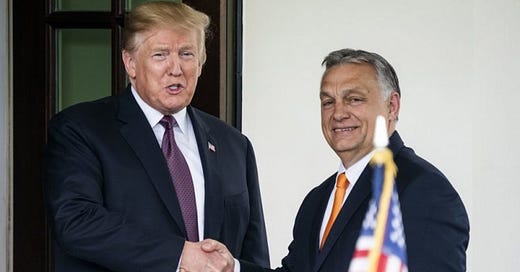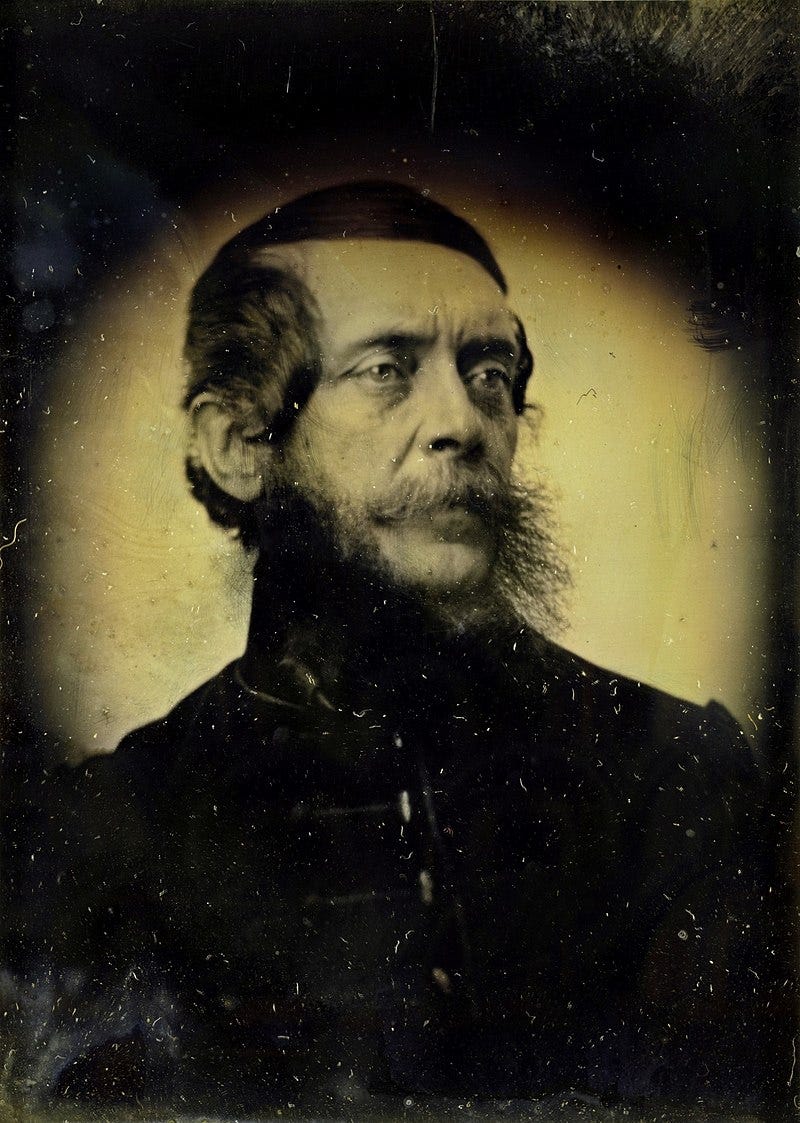An Alternative Viewpoint of Orbán's Hungary
It is neither an authoritarian hellhole, nor a conservative Disneyland

Having lived in Hungary for some time, I find the English-language political portrait of its incumbent leader, Prime Minister Viktor Orbán, lacking in proper context. On one hand, liberals portray him as a right-wing authoritarian and reactionary. On the other, conservatives hail him as the lone defender of Western values against the global progressive elite agenda. Both views place Orbán in the context of Anglo-American political discourse, with little consideration towards the Hungarian and Eastern European background from which he emerges. Even Anne Applebaum, an eminent historian of Eastern Europe, fails to grasp the extent to which Orbán represents a continuation of Hungarian political history, rather than a deviation from it.
The first thing an English-speaking politico, liberal or conservative, needs to know is that Hungarians speak an incredibly difficult native language. As someone who has learned English and is studying Hungarian, mastering the latter takes considerable effort. Unlike English, which is rooted in the Germanic family, Hungarian (or Magyar) is rooted in the Uralic family. Other languages that belong in the same lineage include Finnish and Estonian. Of all these languages, Magyar is the Uralic tongue with the largest number of speakers - numbering at 14 million. Since the vast majority of Magyar speakers compose of the Hungarian population (approximately 9.7 million) as well as the Hungarian diaspora, Magyar is considered a provincial language unique to the Hungarian people and culture. Prime Minister Orbán, who is fluent in both Magyar and English, certainly perceives his native tongue as a national language, and English as a global language. This is a perception held by virtually all Hungarians, as well as the many people across the globe who learn English as a second language. In other words, to learn English is to participate in the globalized world, at the risk of losing one’s national language and character.
If you are a traveler to the city of Budapest, it is important that you visit the House of Terror (Terror Háza), located at Andrássy Avenue 60. The building, which served as a base of operations in both Hungary’s Nazi Arrow Cross Party and Communist Secret Police (ÁVH), is now a place to commemorate victims of these heinous regimes. Inside you will see the names and faces of those detained, interrogated, tortured and killed in the name of totalitarianism, as well as the shameful faces of men and women who took part in state-sanctioned evil. The museum was launched as an initiative from Prime Minister Orbán during his first tenure (1998 - 2002). Although he and his party Fidesz are perceived as right-wing, Orbán founded the party in 1988 as a liberal-nationalist challenge to Hungarian communism (Fidesz is short for Fiatal Demokraták Szövetsége - Alliance of Young Democrats). Although he has abandoned his beliefs in liberalism, Orbán retains his conviction that Hungary needs to be protected not just against totalitarian ideology, but foreign domination also.
I am publishing this piece on March 15th, one of Hungary’s three national holidays. This day commemorates the Hungarian Revolution of 1848, one of the many liberal-nationalist revolutions that broke out in the European continent that year. The other two national holidays are August 20th - commemorating the state’s founding under the Medieval King St. Stephen (Szent István király) - and October 23th, which commemorates the Revolution of 1956 against Soviet invasion. In 1848, Hungarians led by Lajos Kossuth wrestled with the Austrian empire for sovereignty. In 1956, led by Prime Minister Imre Nagy, they struggled against the Soviet empire for the same cause. Orbán sees himself as heir to a long lineage of leaders, among them St. Stephen, Kossuth, and Nagy, who defined Hungarian sovereignty against foreign rule. After the fall of world communism in 1989, Orbán believes that the most urgent challenge to national sovereignty is liberal globalization, represented by the United States and European Union (EU). As globalization enters its fifth decade, Orbán sees clearly the eroding effects that this process has on national sovereignty, especially in regards to small nations like Hungary. This is the key reason why he abandons liberalism in favor of a more conservative form of nationalism, inviting the scorn and praise from foreign commentators of different political persuasions. As the Prime Minister’s current Political Director, Balázs Orbán (no relations), writes:
The last half millennium of our history has been characterized by the struggle for independence, during which Hungary’s independent sovereignty was more often a dream than a reality… Our strategy-making must take into account the feasibility of the objectives of Hungarian politics, but at the same time it must never forget that in politics, sovereignty is a timeless value.
As I join Hungarians in celebrating their nation, I urge commentators of all sides not to assess Hungary’s current leader in terms of simple political labels, but to put him in context of Hungary’s long and turbulent quest for national self-determination. After all, this country allots three days out of the year commemorating that very ideal.





